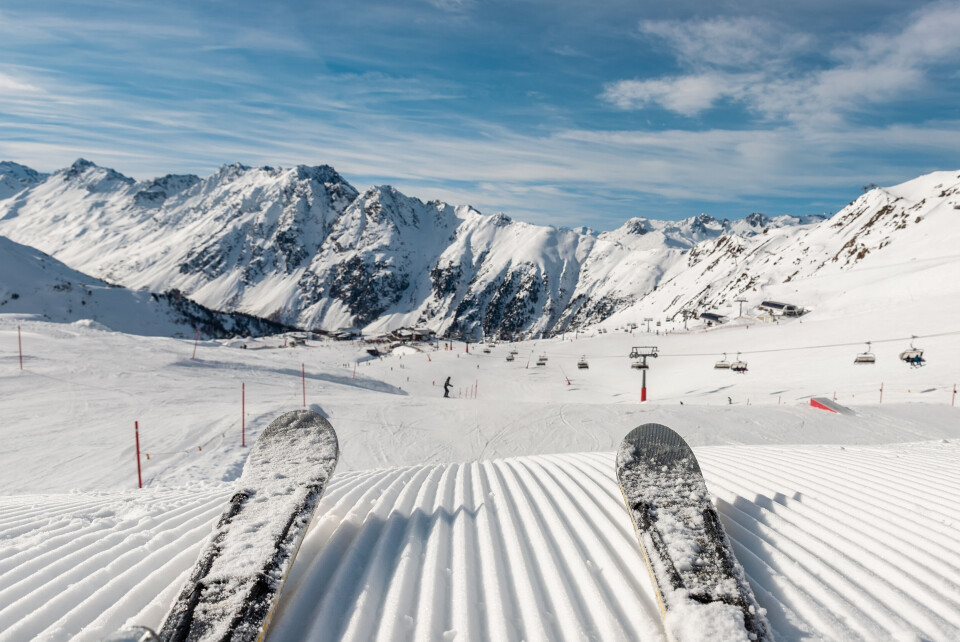-
Paris murder case baffles as suspects are identical twins with same DNA
Pair swap clothes and documents to confuse the court. Defence lawyer claims it is impossible to determine who fired fatal gunshots
-
Storm Nils set to cross France: 30 departments on heightened alert
Gales of up to 160 km/h forecast as storm travels from Brittany to the south-east
-
Best value 2026 Michelin French restaurants: Are there any near you?
Four regions did especially well on this year’s Bib Gourmand restaurant list
French ski professional urges caution after girl, five, dies in crash
Speed radars are not the answer, says expert, as there are no punishments for people who ski too fast

The death of a five-year-old British girl as a result of a ski accident in Flaine (Haute-Savoie) has prompted warnings from winter sports professionals about the importance of being aware of your surroundings while skiing.
Read more:Man charged with manslaughter over ski crash which killed girl, five
“The marvellous weather and good snow at the moment mean some people want to go faster than they are able to,” said Bernard Pascal-Mousselard, who is the chairman of the National Association of Piste Directors and of the Security of Winter Resorts (ADSP), which works to maintain piste quality and safety.
“There will always be some people who think they are alone on the slopes.”
Mr Pascal-Mousselard told The Connexion that skiing accidents happen more often than not “because of a lack of awareness of one’s environment: of other people, of the quality of the snow.
“And then there might be a little bump in the piste and those who are not aware of their surroundings” can easily get knocked off course.
“The speed that they are going at will determine the seriousness of the collision.”
Mr Pascal-Mousselard and his colleagues concentrate on “information, education and raising awareness of the signs which say ‘Caution: crossing,’ ‘Slow down’ and so on.
“Nowadays, we are approaching individuals more and more to explain things to them orally, and that works because they listen to us.
“They can easily ignore a sign, but when we talk to them they listen and the message goes in. Afterwards, whether they decide to do what we ask of them or not is another matter, but we know at least that they have heard our message.”
Mr Pascal-Mousselard also stressed the importance of monitoring your speed and surroundings more carefully when skiing down easier, green or blue runs.
“You have to be much more vigilant anywhere where there are beginners,” he said, adding that it is not just speed that matters.
“When an adult hits a little girl who is practically at a stop, they do not need to be going very fast to cause serious harm.
“It is like when a car goes into a wall: even when travelling slowly it damages more than the paintwork.”
Speed radars fail to deter skiers travelling too fast
Over the past 10 years, some French ski resorts have tried installing speed radars which tell a skier how fast they are going and encourage them to test their capacity to come to a complete stop before they reach a marker positioned further down the slope.
The resort of Peyragudes in the Pyrenees introduced such a device around ten years ago.
“What interests me is controlling one’s speed, not going fast,” Virginia Viau, the then manager of visitor information at Peyragudes told La Dépêche.
“These speed tests allow us to visualise our speed and our stopping distances. This is interesting information.”
However, Mr Pascal-Mousselard argued that these radars often counterproductive.
“We don’t put up speed radars because the problem is that some skiers try to reach new speed records with them,” he said.
“That’s what the resorts who did install them in the past noticed, and as there are no punishments for going too fast – unlike on the road – they become a game.”
Educating skiers about their speed and their surroundings is vitally important if accidents are to be avoided, especially as people can easily get up to 60km/h without realising.
To avoid serious accidents, skiers should always wear helmets and should try to monitor their speed, reducing it on beginner slopes.
Related articles
France reopens to UK tourists: Rules for adults and children
‘Happy and relieved’: French ski resorts prepare for British visitors
























